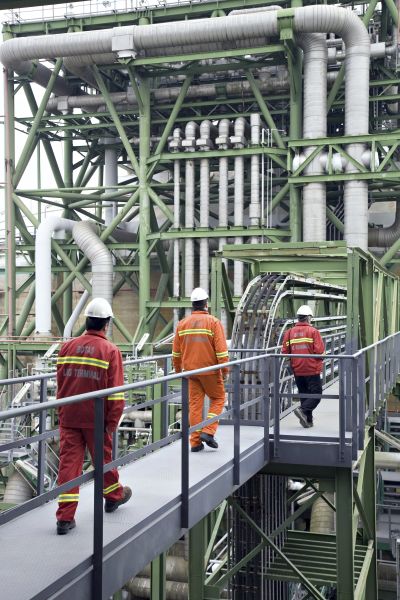The increasingly rapid de-industrialisation of Europe is laid bare by new trade union research which finds almost a million manufacturing jobs have been lost over the last four years.
An analysis of Eurostat data by the European Trade Union Institute has found that the number of people employed in manufacturing has fallen by 853,000 since the third quarter of 2019.
The highest number of job losses were in Poland (-278,000), Romania (-144,000) and Germany (-129,000). The losses in Croatia and Slovenia represented 14% of its entire manufacturing workforce, putting them ahead of Bulgaria (13%) and Czech Republic (11%) in terms of percentage losses.
The cuts, caused principally by a lack of tailored support for EU industry, followed a decade of relative stability for industrial employment.
Table 1: The 10 countries which have lost the highest number of manufacturing jobs
| Country | % change 2019 to 2023 | Actual change 2019 to 2023 |
| Poland | -8.4 | -278,200 |
| Czechia | -11.3 | -161,400 |
| Romania | -8.8 | -144,000 |
| Germany | -1.6 | -129,300 |
| Bulgaria | -13.1 | -79,100 |
| Slovakia | -9.4 | -59,600 |
| France | -1.7 | -53,600 |
| Croatia | -14.2 | -42,800 |
| Slovenia | -14.2 | -37,200 |
| Portugal | -2.3 | -18,800 |
| EU 27 | -2.6 | -853,500 |
The move to a sustainable economy is an opportunity to turn the situation around, but the EU needs an industrial policy to protect and create quality jobs.
Trade unions are calling on the EU to change course and reject austerity and instead:
· Establish a permanent EU investment instrument with sufficient resources to support all member states and regions.
· Ensure public money supports the creation of quality jobs and collective bargaining through strong social conditionalities, connected to investments, state aid and public funding.
· Introduce a European Directive for Just Transition in the world of work through anticipation and management of change, with social dialogue and collective bargaining as leading principles.
ETUC General Secretary Esther Lynch said:
“The workforce that powers Europe’s manufacturing is as essential to the continent’s future success as it has been in the past. The grim reality of nearly 1 million jobs having been shut down must be addressed. The EU can turn this around by equipping itself with an industrial policy that has quality jobs at its core.
“A successful industrial policy recognises the importance of all sectors, public and private, to the success of Europe and needs to be properly funded, effective, and focussed to be impactful over the long-term. The plan we are putting forward and is built on those three components.
Firstly, we need an investment instrument that matches the scale of the challenge Europe is facing. Secondly, bringing in strong social conditionality would make sure every cent of public money is geared towards protecting and creating quality jobs. Thirdly, the EU needs the capacity to anticipate and manage change through a Directive for Just Transition.
“Having a strong and sustainable industry is a common interest of workers, employers, and governments. We will be raising our solutions at this week’s EU Tripartite Social Summit.”
IndustriAll Europe General Secretary Judith Kirton-Darling said:
"Europe's industrial sectors and their workers are fundamental to delivering the climate solutions Europe needs. They depend on investment and targeted industrial policies. Instead of watering down the objectives of the Green Deal in a difficult political and economic climate, we must continue to support clean technologies and we must reverse deindustrialisation.
"For this, we must ensure a macroeconomic policy framework that creates the space for the necessary investment, and we must ensure that investment is linked to social conditionalities such as guarantees of good industrial jobs, stronger social dialogue and a just transition for the millions of workers affected by industrial change.
"That is why industrial workers support a European Industrial Deal. They need to be sure that industry has the conditions to play its part in delivering the EU Green Deal and creating good industrial jobs. This is the only way to ensure that working people continue to take on the commitments of the Green Deal. A return to austerity in Europe would have the opposite effect. In the run-up to the European elections, the EU institutions had better take note of this.”

